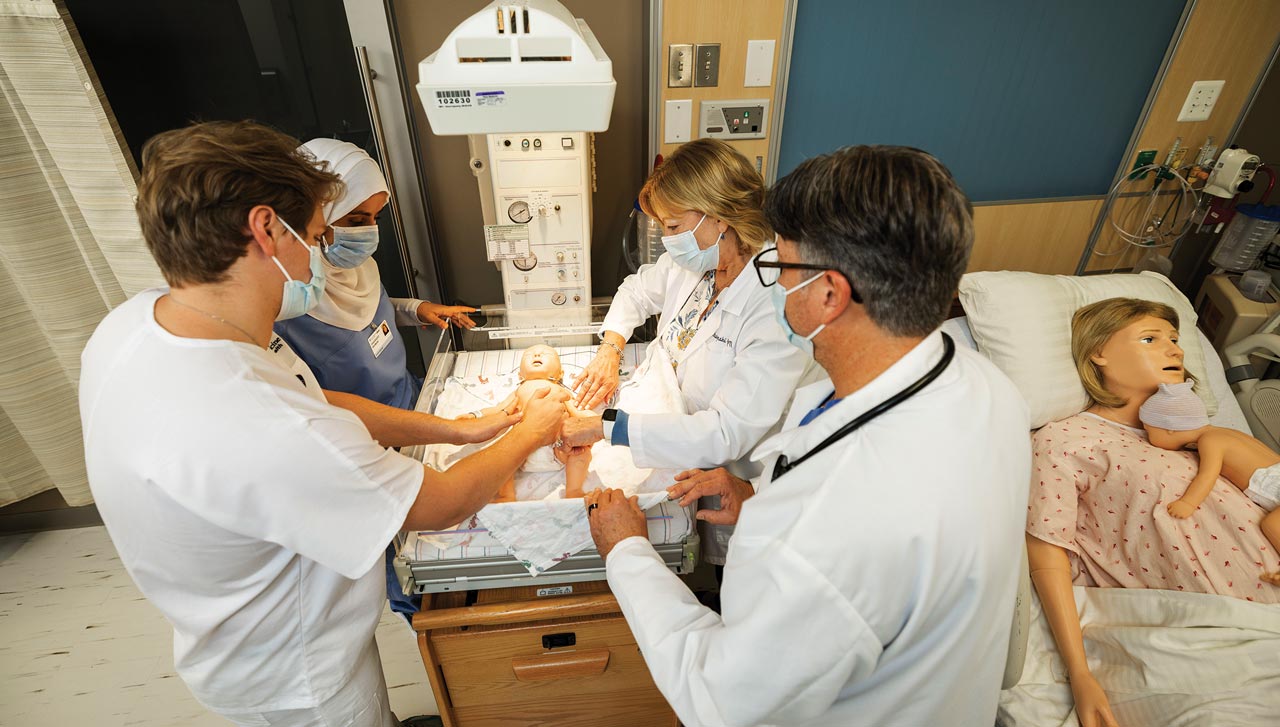Studies have found that when used in conjunction with classroom instruction and clinical experiences, nurses trained in simulation labs are more efficient and confident, resulting in safer care, improved patient outcomes, and higher rates of treatment success.
“Clinical simulations are an important part of reinforcing knowledge, improving teamwork and communication, and streamlining processes,” says Karyn Book, Vice President of Patient Care Services and Chief Nursing Officer at PMC. “It’s an opportunity for our team to practice clinical skills in exactly the same environment where they will be providing care.”
Adult and Infant Simulators Offer Full Range of Scenarios
The 1,760-square-foot lab, on the first floor of the medical center, includes a full-size mock patient room and two classrooms. The lab is designed for hands-on training as well as remote, off-site call-ins.
Using two highly sophisticated patient simulators — an adult female and a newborn — healthcare professionals can hone skills ranging from placement of IV lines to scenarios such as delivering a baby or handling a cardiac arrest. Simulation specialists running the show behind the scenes use a sophisticated control panel to adjust the patient simulator’s symptoms and responses, creating a range of standard medical and surgical issues. For obstetrics and gynecology training, for example, the simulator can be used to train care providers in managing high-risk deliveries, such as an emergency C-section, and post-partum care emergencies, like a uterine hemorrhage. The infant simulator behaves like a newborn, including making crying and grunting sounds, and is used to create life-like scenarios, such as neonatal resuscitation.
“Simulations practiced in the lab can mimic some of the worst-case scenarios clinicians may encounter on any given day,” says Book. “This training helps ensure clinicians have the skills and confidence to care for patients — whatever situation may arise.”
The Simulation and Training Lab at PMC was established with gifts from several donors to the Penn Medicine Princeton Medical Center Foundation, including lead donor Betty Wold Johnson. The adult female simulator was purchased through the George and Estelle Sands Foundation Fund for Cardiac and Pulmonary Care. The neonate simulator was purchased with a grant supported by Mr. and Mrs. Jack Z. Rabinowitz.

